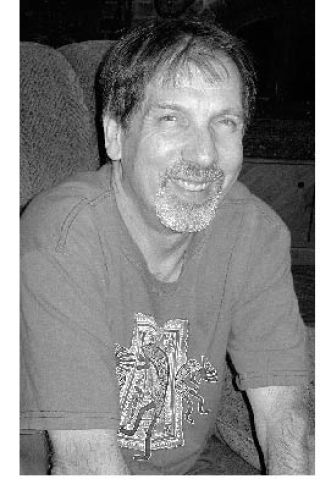“We were living in a teeny-tiny travel trailer about the end of January, no electricity, no running water and our five-gallon goldfish bowl was frozen so the fish didn’t have room to turn around,” said Dave Anderson, laughing.
Anderson had searched a map for a small town where he could teach and had selected Cusick, WA. Then he took a class on building a log cabin. Anderson questioned the instructor about his own cabin and he responded, “Actually, I’ve never built one.” Two classmates and Anderson left the class and concluded they could learn together. “We cut trees, peeled bark, and built the first cabin and then mine. Fortunately the third guy moved so we didn’t have to build his,” Anderson confessed.
Another search, another move, and another small town, Gifford, WA, on the Columbia River and Anderson became the only teacher for 44 students, kindergarten through eighth grade. Soon it was time for him to search again, this time for someplace warmer and back on the western side of the state.
Born in Ontario, OR, in 1947, Anderson attended schools in Tacoma and Seattle. His grandfather, a retired railroad engineer, would take the train to Tacoma and return with Anderson and his sister to Ontario where they spent their summers. “Our grandparents did everything for us, made special cookies, taught me to drive. I’ll tell you, that was fun.”
His parents moved to Mt. Vernon where Anderson attended Skagit Valley College for two years. His dad had Anderson’s Tire Service and his mother, a war bride from England, stayed at home. Anderson’s love and enjoyment of children led him to seek the teaching degree he received from Central Washington in 1969.
On the last day of college, a classmate introduced him to her roommate, Karen Bliven. The couple married in 1971 and have two children, Kyle who is studying for a doctorate in geophysics at Stanford, and Stefanie, a pediatric occupational therapist in Bellingham.
Anderson taught sixth grade in the Highline School District for six years before the small town search. “I found a job at Lopez in 1977. Kyle was two, we packed him up in the VW bug, drove over here, caught the ferry, came to Lopez and I was hired that day as fifth and sixth grade teacher and boys’ basketball coach.”
Anderson served as Athletic Director at the Lopez School, taught in middle school as it was beginning to form, and moved on to high school history and economics. With a talent for student rapport, he then obtained a counseling degree from Eastern Washington when Jim Smith was superintendent. While Karen worked, he took their two children with him to Cheney for his summer sessions and enrolled them in activities while he attended classes. They swam together in afternoons, read together, and he studied after the children went to bed. “We really had a good time.”
“Richardson store was quite a place. They had everything—toys, clothes, food, hardware, great ice cream cones. I was a volunteer fire fighter when it burned. There was real grief about the loss. We’d take a watermelon to Richardson and watch the Scripps Island fireworks on the fourth of July.” While serving as fire commissioner a couple of years, Anderson ended his extended fire fighting and EMT service.
The Andersons built the log home where they now live. He bought a 1932 John Deere tractor when he first came to the island to drag the logs they cut on their property. The couple peeled them with the help of friends and family, let them set for a year and then put them up.
Anderson first noticed he was easily fatigued and had some numbness and weakness while building the house. He went from Dr. Dengler to a neurologist to Magnetic Resonance Imagining (MRI), new at the time. Swedish Hospital had the only one in the state. A diagnosis of Multiple Sclerosis (MS) was made in the mid-1980s. Anderson won a lottery to receive Betaseron, a drug useful in the early relapsing/remitting stages of the disease. “There is nothing for the primary progressive stage. I just have to deal with it. Without Karen I don’t know if I’d be able to make it. I try to keep a good spirit. Heat wipes me out because I don’t sweat.”
Anderson concluded his career with a teaching exchange to Australia and retired in 2003. “Missing the students is the hardest part.” The couple cares for Karen’s 90-year-old parents and on two days a week they are with two and five-year-old grandchildren.
The walls of their home are decorated with pictures of wildlife Anderson makes using the natural colors of different woods. Talk of a book group and weekly card games lights up his face. “The news doesn’t tell how really nice, supportive and helpful people are,” Anderson said.




